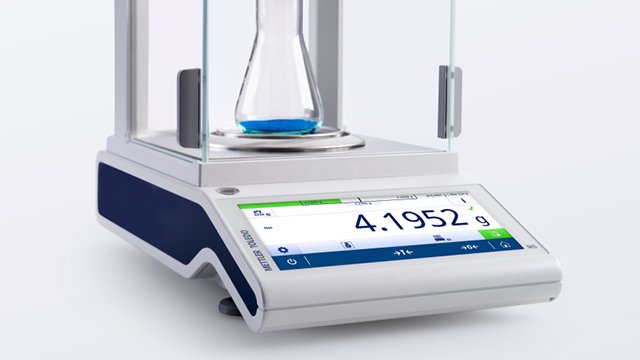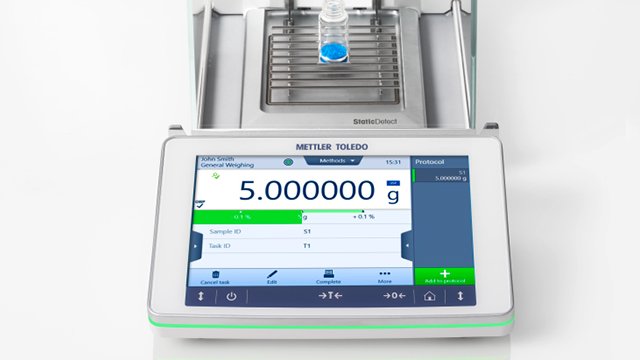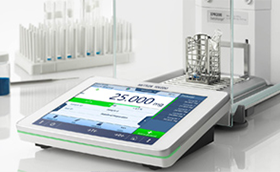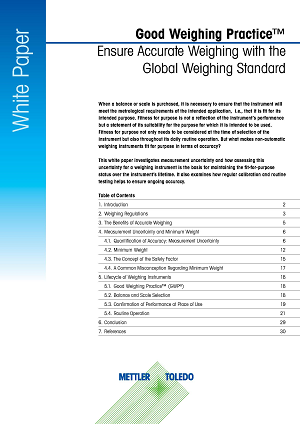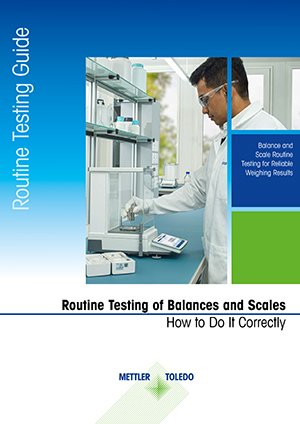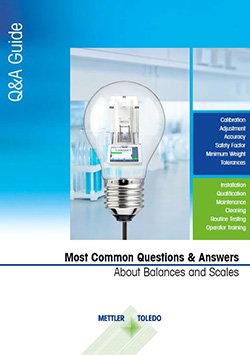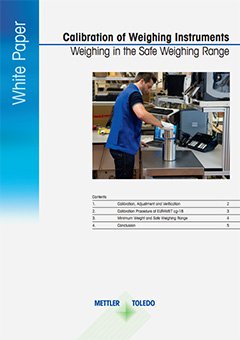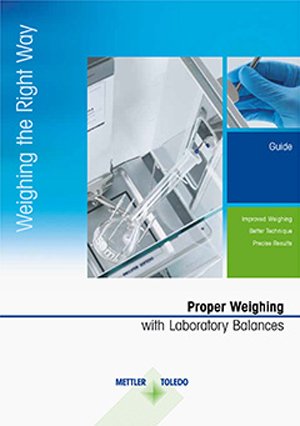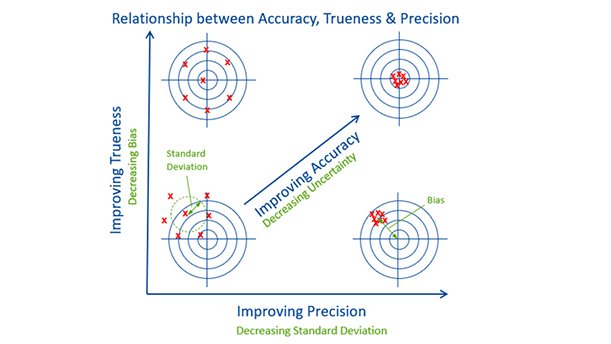
Accuracy, trueness, and precision are three terms used to describe the quality of a measurement, but they refer to different aspects of it.
- Trueness refers to how close a measurement or series of measurements are to the true or expected value. In other words, trueness measures how well a measurement reflects reality.
- Precision, on the other hand, refers to how consistent or reproducible a measurement is. In other words, precision measures how well a measurement can be replicated or repeated. A measurement can be precise even if it's not accurate. For example, if you throw five darts and they all hit the same corner of the dartboard, your throwing is precise but not true.
Another word to describe precision is repeatability, the ability of an analytical balance to give the same result when weighing the same sample multiple times. If a balance has good repeatability, it means that it can weigh the same sample multiple times and give results that are very close to each other. - Accuracy is the combination of trueness and precision. When measurements are consistently close to the true value, they are considered accurate.
